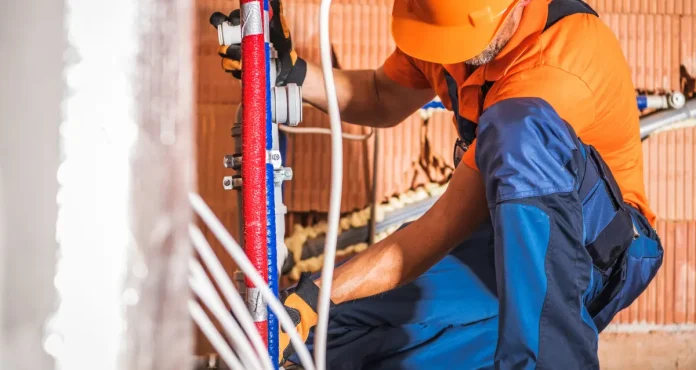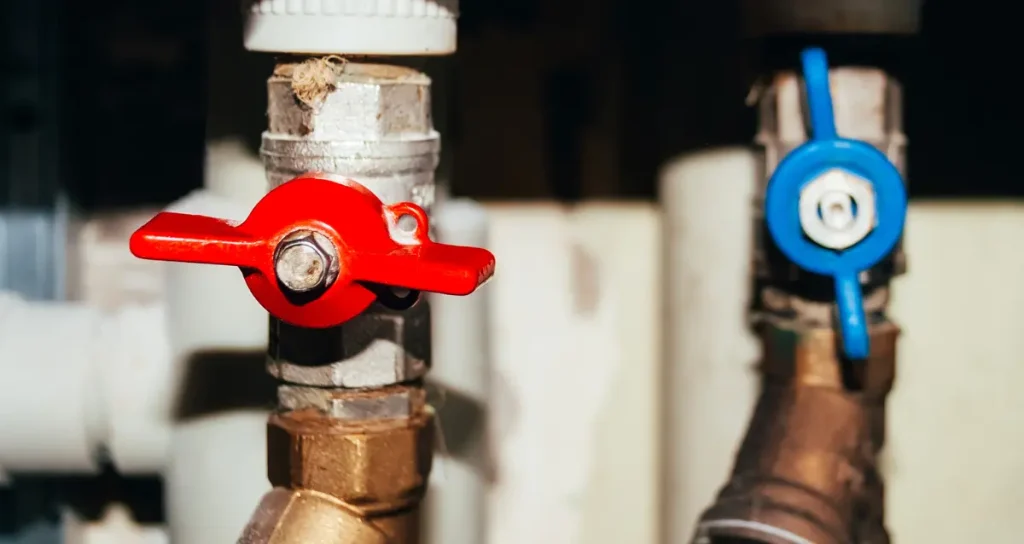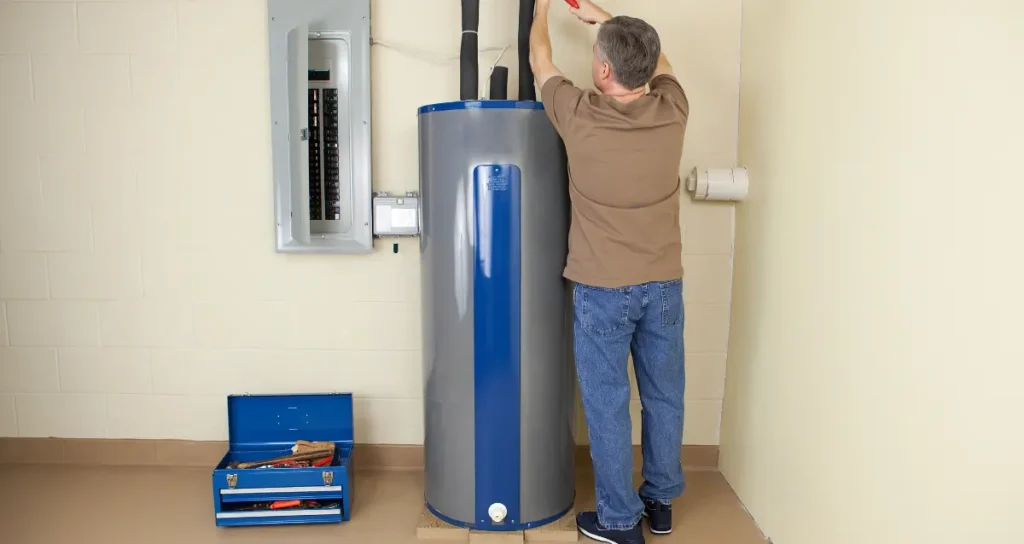
Water supply lines are an integral part of every home, quietly ensuring that we have access to clean water whenever we need it. From taking a refreshing shower in the morning to preparing meals and cleaning, these pipes play a critical role in our daily routines. Yet, their impact goes beyond convenience; the quality, reliability, and maintenance of water supply lines significantly influence our health and overall well-being.
Quality of Water Supply
The materials used in constructing water supply lines greatly affect the quality of water that reaches our taps. Traditional materials like copper have been widely used due to their durability and resistance to corrosion. However, modern alternatives such as PEX (cross-linked polyethylene) and PVC (polyvinyl chloride) offer distinct advantages in terms of flexibility and ease of installation.
Copper pipes, though reliable, can sometimes leach small amounts of copper into the water, which in excessive quantities may pose health risks. PEX and PVC are generally considered safer in this regard, though they are not entirely without concerns. PEX, for instance, can sometimes impart a plastic taste to water if not properly installed.
Outdated or poor-quality pipes can introduce various contaminants into the water supply. Lead, a notorious contaminant, was commonly used in older pipes and soldering materials. Even in small amounts, lead exposure can cause serious health issues, especially in children, including developmental delays and neurological damage. Regular testing and upgrading of old pipes are crucial to ensure water safety.
Water Pressure and Flow
Consistent water pressure is essential for the smooth functioning of daily activities like showering, cooking, and cleaning. Low water pressure can be frustrating, leading to inefficient dishwashing and uncomfortable showers. On the other hand, excessively high water pressure can damage appliances, cause pipe bursts, and increase water waste.
Solutions for water pressure issues often involve adjusting the pressure regulator or installing pressure-boosting systems. It’s also important to check for leaks and blockages that might be affecting the water flow. Proper maintenance and timely repairs can help maintain optimal water pressure, ensuring a comfortable and efficient household.

Health Implications
The health implications of water supply lines are profound. Contaminants such as lead, bacteria, and other harmful substances can enter the water supply through deteriorating pipes or improper installation. Lead contamination, as mentioned earlier, can have severe health effects, particularly on young children and pregnant women. Bacterial contamination, on the other hand, can lead to gastrointestinal illnesses and other infections.
Ensuring a clean water supply is essential for preventing diseases and promoting overall well-being. Regular testing of water quality, timely replacement of outdated pipes, and using appropriate filtration systems can help mitigate these health risks. Clean water is fundamental to maintaining good health, and high-quality water supply lines are a critical component in achieving this.
Comfort and Convenience
Reliable water supply lines are key to household comfort and convenience. Imagine the inconvenience of dealing with frequent leaks, bursts, or clogs. These issues not only disrupt daily routines but can also lead to water damage and increased utility bills.
Leaks, if not addressed promptly, can cause significant damage to walls, floors, and foundations, leading to costly repairs. Bursts can result in severe flooding, while clogs can prevent water from flowing freely, impacting everything from taking a shower to doing laundry. Ensuring that water supply lines are in good condition can prevent these problems, contributing to a more comfortable and hassle-free living environment.
Modern Plumbing Innovations
Advances in plumbing technology have brought about significant improvements in the quality and reliability of water supply lines. Innovations such as flexible PEX piping, which is resistant to freezing and bursting, and the use of trenchless technology for pipe replacement, minimize disruption and improve installation efficiency.
Upgrading old pipes to modern materials can offer numerous benefits. For example, PEX piping is not only durable and flexible but also resistant to scale and chlorine, which can improve water quality and extend the lifespan of the plumbing system. Modern plumbing technologies also enable more efficient water flow and reduce the likelihood of leaks and other common issues.
Energy Efficiency
Efficient water supply systems can contribute significantly to reducing energy consumption. Water heating is one of the largest energy expenses in most households. By ensuring that water supply lines are properly insulated and free from leaks, energy waste can be minimized.
Tankless water heaters, for instance, provide hot water on demand without the need for a storage tank, reducing standby energy losses. Additionally, using modern, energy-efficient appliances and fixtures can lower energy bills while providing the desired level of comfort and convenience.
Maintenance and Upkeep
Regular maintenance is essential to ensure that water supply lines function optimally. Simple tasks like checking for leaks, insulating pipes, and ensuring that water pressure is within the recommended range can prevent many common problems.
Homeowners should also schedule periodic inspections by professional plumbers to identify and address potential issues before they become major problems. Proper maintenance not only prolongs the life of the plumbing system but also ensures a consistent and safe water supply.

Environmental Considerations
Sustainable plumbing practices play a vital role in conserving water and protecting the environment. Modern water supply lines designed for efficiency help reduce water waste. For example, low-flow fixtures and faucets, along with efficient piping systems, ensure that water is used more effectively.
Upgrading to environmentally friendly materials and practices can contribute to water conservation efforts. Using rainwater harvesting systems and greywater recycling can reduce the demand on the municipal water supply, promoting sustainability and environmental responsibility.
DIY vs. Professional Upgrades
When it comes to upgrading or repairing water supply lines, homeowners often face the decision of whether to undertake the work themselves or hire a professional plumber. DIY fixes can be cost-effective for minor issues like fixing a leaky faucet or unclogging a drain. However, more complex tasks, such as replacing old pipes or installing new plumbing systems, typically require professional expertise.
Hiring a professional plumber ensures that the job is done correctly and safely, reducing the risk of future problems. Professionals have the necessary tools, knowledge, and experience to handle complex plumbing issues, ensuring that the water supply lines meet all safety and quality standards.
Water supply lines are fundamental to our daily comfort and health. The quality of materials used, consistent water pressure, and proper maintenance all play crucial roles in ensuring a safe and reliable water supply. Contaminants in the water can pose serious health risks, making it essential to invest in high-quality plumbing systems and regular upkeep.
Modern plumbing innovations and sustainable practices not only enhance the reliability and efficiency of water supply lines but also contribute to environmental conservation. Whether considering DIY fixes or professional upgrades, maintaining a well-functioning plumbing system is a worthwhile investment for any homeowner.
By assessing and upgrading your water supply lines, you can ensure a healthier, more comfortable living environment. Prioritize regular maintenance, embrace modern technologies, and make informed decisions about your plumbing system to enjoy the benefits of a reliable water supply for years to come.
FURTHER READING









